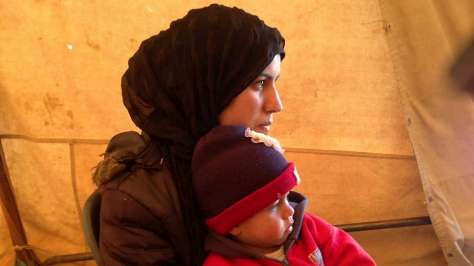Attorney Resources
Resources for attorneys representing asylum-seekers in the United States
UNHCR’s U.S. Protection Unit has developed resources to assist attorneys representing asylum-seekers in the United States. These resources break down how to use international law and UNHCR guidance to support claims from individuals seeking protection in the U.S. The resources address six core topics: children’s claims, gender based asylum claims (women’s claims), claims from individuals fleeing gang violence in Central America, detention issues, and statelessness. Each topic includes a cover note explaining how to use UNHCR guidance and international law to leverage an asylum claim, as well as additional resources.
Information about upcoming webinars On January 10th, UNHCR hosted a webinar on how to use international law and UNHCR guidance to represent asylum-seekers in the U.S.
- Recording available here. Click here for Powerpoint slides.
- For additional webinar recordings on women's claims, children's claims, and LGBTI claims, please see the pages below. For information about upcoming webinars, please check back for updated dates and times.
Children's Claims
UNHCR's views on the specific protection needs of children in asylum procedures.
- Guidance on child asylum claims;
- UNHCR's approach to claims from Central American children fleeing gang violence;
- Additional UNHCR guidance and reports.
Women's Claims
UNHCR's views on the special protection needs of women and girls in asylum procedures.
- UNHCR's views on gender-based asylum claims;
- Interpreting "particular social group" to encompass gender;
- Additional UNHCR guidance and reports.
Claims from Central America
UNHCR's views on asylum claims from individuals fleeing gang violence in the Northern Triangle of Central America (NTCA) and Mexico.
- Analysis of asylum claims from individuals fleeing NTCA and Mexico;
- Additional UNHCR guidance and reports.
LGBTI Claims
UNHCR's views on asylum claims based on sexual orientation and/or gender identity.
- Analysis of LGBTI claims and particular issues arising under such claims;
- Additional UNHCR guidance and reports.
Detention
UNHCR's position on the detention of asylum-seekers in the U.S.
- Tools to advocate for release from detention
- Additional UNHCR guidance and international law resources.
Statelessness
Information on the specific protection needs of stateless individuals.
- What it means to be stateless in the U.S.;
- Forms of relief for stateless individuals;
- Additional UNHCR guidance and reports.
How is international law and UNHCR guidance relevant in U.S. asylum proceedings?
The 1951 Convention Relating to the Status of Refugees and its 1967 Protocol are the key international instruments governing the protection of refugees. The U.S. is a party to the 1967 Protocol and therefore has undertaken to comply with its provisions and safeguard the protection of refugees. In addition, the U.S. incorporated the substantive provisions of the 1967 Protocol into domestic law through the 1980 Refugee Act. The Refugee Act should be interpreted and implemented in a manner consistent with U.S. international law obligations.
International law can be used to support an individual’s claim to refugee status. UNHCR has developed extensive resources, divided by topic above, which may be relevant to advocating on behalf of asylum-seekers in the U.S. UNHCR's guidelines and reports address both substantive and procedural issues and can be used by attorneys to help leverage asylum claims in the U.S.
U.S. courts have relied on UNHCR guidance and interpretations in assessing refugee claims. Courts have recognized that UNHCR’s “analysis provides significant guidance for issues of refugee law.” In addition, under U.S. jurisprudence, U.S. courts have an obligation to construe U.S. statutes in a manner consistent with U.S. international obligations whenever possible.






